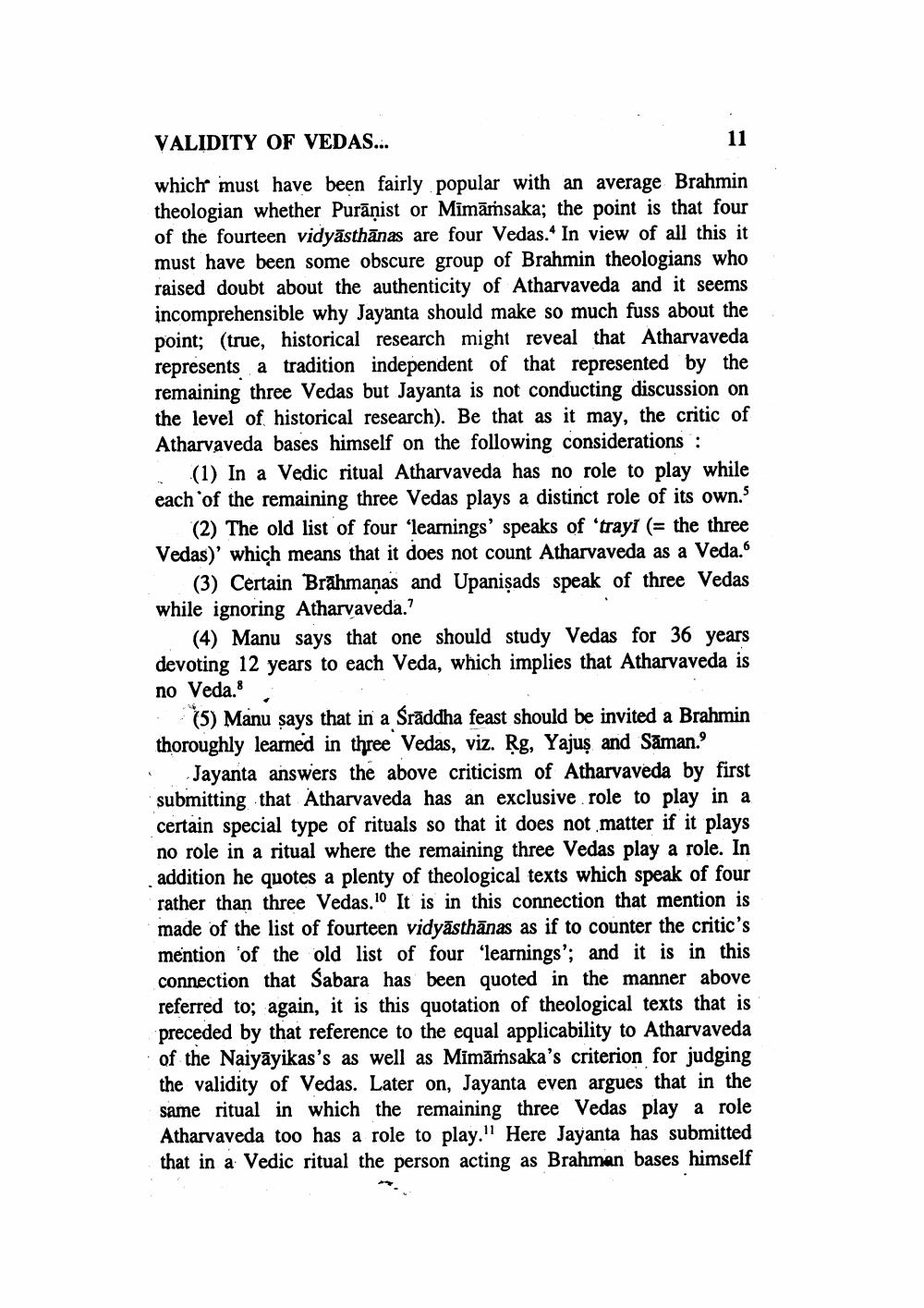________________
VALIDITY OF VEDAS...
which must have been fairly popular with an average Brahmin theologian whether Purāṇist or Mimāṁsaka; the point is that four of the fourteen vidyāsthānas are four Vedas. In view of all this it must have been some obscure group of Brahmin theologians who raised doubt about the authenticity of Atharvaveda and it seems incomprehensible why Jayanta should make so much fuss about the point; (true, historical research might reveal that Atharvaveda represents a tradition independent of that represented by the remaining three Vedas but Jayanta is not conducting discussion on the level of historical research). Be that as it may, the critic of Atharvaveda bases himself on the following considerations :
(1) In a Vedic ritual Atharvaveda has no role to play while each of the remaining three Vedas plays a distinct role of its own.
(2) The old list of four 'learnings' speaks of 'trayi (= the three Vedas)' which means that it does not count Atharvaveda as a Veda.
(3) Certain Brāhmanas and Upanisads speak of three Vedas while ignoring Atharvaveda.?
(4) Manu says that one should study Vedas for 36 years devoting 12 years to each Veda, which implies that Atharvaveda is no Veda. ,
(5) Manu says that in a Srāddha feast should be invited a Brahmin thoroughly learned in three Vedas, viz. Rg, Yajus and Saman.
Jayanta answers the above criticism of Atharvaveda by first submitting that Atharvaveda has an exclusive role to play in a certain special type of rituals so that it does not matter if it plays no role in a ritual where the remaining three Vedas play a role. In addition he quotes a plenty of theological texts which speak of four rather than three Vedas. It is in this connection that mention is made of the list of fourteen vidyāsthānas as if to counter the critic's mention of the old list of four "learnings'; and it is in this connection that Sabara has been quoted in the manner above referred to; again, it is this quotation of theological texts that is preceded by that reference to the equal applicability to Atharvaveda of the Naiyāyikas's as well as Mimāṁsaka's criterion for judging the validity of Vedas. Later on, Jayanta even argues that in the same ritual in which the remaining three Vedas play a role Atharvaveda too has a role to play." Here Jayanta has submitted that in a Vedic ritual the person acting as Brahman bases himself




